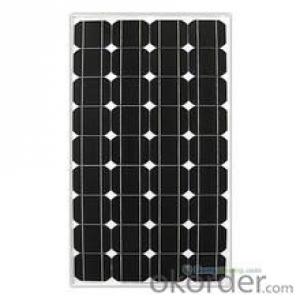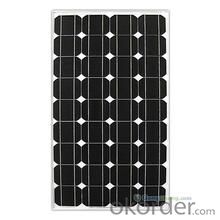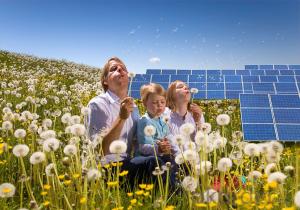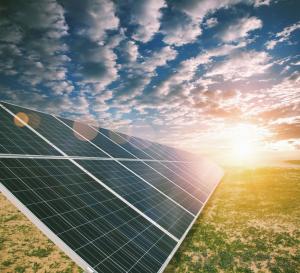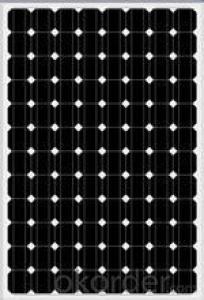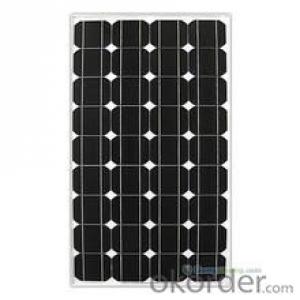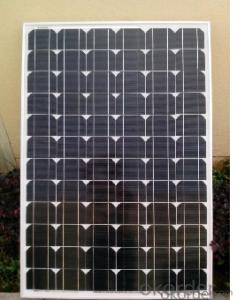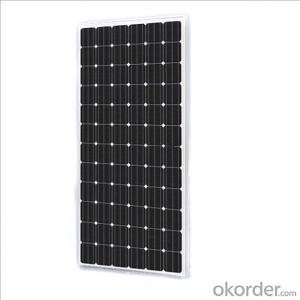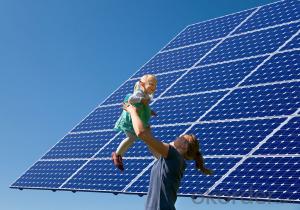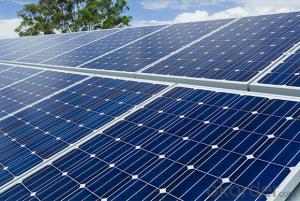Flexible Solar Panels for Car Roof - SEC 275W Monocrystalline Silicon Solar Panels
- Loading Port:
- Shanghai
- Payment Terms:
- TT OR LC
- Min Order Qty:
- 199000 watt
- Supply Capability:
- 2000000 watt/month
OKorder Service Pledge
OKorder Financial Service
You Might Also Like
The company mainly engaged in the PV inverter, bus boxes, distribution cabinets, solar photovoltaic power plant control systems, electrical products and photovoltaic power tracking system in the development, production, sales and service.
Through independent research and technical cooperation, master of the photovoltaic power generation system as a whole solution.
Designs and manufactures a complete series of photovoltaic power generation system products.
Designed and built experimental 100kWp photovoltaic power plants, the company has participated in several national and local PV demonstration power plant design and construction work for these projects provide a photovoltaic inverter,
mine convergence box, power distribution cabinet Photovoltaic solar power plant control systems, complete sets of electrical products.
| Maximum Power | 275W |
| Brand | SECSOLAR |
| Cell Type(mm) | Monocrystalline solar cell 156*156 |
| Number of Cell(pcs) | 60(6*10) |
| Manufacture Site | China |
| Open-Circuit Voltage (Voc) | 38.3V |
| Maximum Power Voltage (Vmp) | 31.0V |
| Short-Circuit Current (Isc) | 9.35A |
| Optimum Operating Current (Imp) | 8.87A |
| Power Tolerance | 0 ~ +5W |
| Module Efficiency | 16.9% |
| Dimensions(mm) | 1640*992*40 |
| Weight(kg) | 19 |
| Backsheet | White |
| Frame Color | Silver |
| Frame | Anodized Aluminum Alloy |
- Q: Can solar panels be connected to the grid?
- Yes, solar panels can be connected to the grid through a process called grid-tie or grid-connected system. This allows excess electricity generated by the solar panels to be fed back into the grid, reducing reliance on traditional power sources and potentially earning credits or payments from the utility company.
- Q: The Physics club in our school is trying to convince the Board of Ed to install solar panels in our school, and i was just wondering if anyone with some experience or real expertise in solar energy. I need some points about their usefulness some real pros and cons on maintenance, etc. Anything will help. Personally i would be perfectly for the idea, but i heard that the overall cost of installing them is much higher than the cost of the energy saved and government subsidies, but ive only heard about this.
- Solar panels give off no pollution, the only pollution produced as a result of solar panels is the manufacturing of these devices in factories, transportation of the goods, and installation. The production of energy from the use of fossil and some renewable fuels (e.g. wind turbines) can be noisy, yet solar energy produces electricity very quietly. One of the great pros of solar energy is the ability to harness electricity in remote locations that are not linked to a national grid. A prime example of this is in space, where satellites are powered by high efficiency solar cells. The installation of solar panels in remote locations is usually much more cost effective than laying the required high voltage wires. Solar energy can be very efficient in a large area of the globe, and new technologies allow for a more efficient energy production on overcast/dull days. Solar panels can be installed on top of many rooftops, which eliminates the problem of finding the required space for solar panel placement. Another great pro of solar energy is the cost. Although the initial investment of solar cells may be high, once installed, they provide a free source of electricity, which will pay off over the coming years. The use of solar energy to produce electricity allows the user to become less dependent on the worlds fossil fuel supplies.
- Q: Can solar panels be used to power a bank?
- Yes, solar panels can be used to power a bank. Solar panels generate electricity by converting sunlight into usable energy, which can be used to supply power to a bank's operations and facilities. By installing solar panels, banks can reduce their reliance on traditional energy sources and lower their carbon footprint. Additionally, solar power can help banks save on energy costs in the long run.
- Q: Can solar panels be installed on a south-facing wall?
- Yes, solar panels can be installed on a south-facing wall. In fact, a south-facing wall is often the most ideal location for solar panel installation as it receives the most direct sunlight throughout the day, maximizing energy production.
- Q: I need a solar panel for my laptop as i am going camping in the desert, and i need my laptop. There are two choices of solar panels, One is 0 watts and 2 V and maximum power current 0.56 amps. The other one is 2 watts, 2 V and no mention of current. My laptop plug says input 00-240V and .5A and then output 5V-5A. Which one should i get for my laptop. If there are other choices please tell me ill look them up on OKorder.Thanks
- I'm afraid neither of these panels will do much for charging or running your laptop. If the power brick is supposed to emit 5 volts at 5 amps, that's 75 watts. Neither of those panels provides enough voltage and the power output is obviously far too small. The capabilities of solar power are vastly overestimated for small panels. Sunlight is limited to about kilowatt per square meter under ideal conditions (summer time, clear blue sky, for a few hours around noon in the US southwest). But consumer panels top out at about 5% efficiency, so your limit is 50 watts per square meter - in other words you would need about half a square meter, or about six square feet, of panel to provide 75 watts. And even under ideal conditions you will only get that much for a few hours each day. Also, the panel's voltage output is not regulated, so even if you find a panel that emits 5 volts (this would actually have to be made up of groups of 30 cells in series, as they emit half a volt each at most) you can't just connect the panel output into your laptop's DC in. You'd need a regulated DC-to-DC supply, and since that is not 00% efficient it will cost a bit of the power... now you need even more panel area. All in all, not really a practical thing to carry along on a camping trip.
- Q: we are doing a fundraiser to have students pledge to make donations for a solar panel instalation on one of the school buildings. I am looking for a slogan for the campain.
- Build okorder
- Q: Green issues aside, are solar panels worth it, monetarily speaking?I don't mean that my house might be worth more or any of that. All I am asking is this: if I invest in a set of solar panels, will the cost be paid back to me over time? If so, how long will it takegt;Take into account the following:. Currently I pay the electric company around $00 per month2. I use around 400 kilowats of energy per monthI realize that exact numbers are hard to come by, but any opinions are welcome.
- With tax incentives, yea it's worth it. It will take years to recoup the costs. You need to live there for a while.
- Q: I am planning to run a couple of dc motors on solar current. I have a couple of 450mA 4V, 200mA .5V, 00mA 9V solar panels with me. I need to run a pair of .5A 9V motors. Suggest me a circuit along with other equipments I might require. For your info, I am trying to build a solar powered drone / UAV
- I don't think it is enough solar power. Your motor requires .5A x 9V = 3.5 watts. The solar cells are .450A x 4V x 2ea. = 3.6 watts, .2A x .5V = .3 watts, .A x 9V = .9 watts total solar = 4.8 watts. The problem with connecting the cells in series to get the right voltage, like the two 4V cells in series with the .5 volt cell (total 9.5 volts) is that the .5 volt cell limits the maximum current to only 0.2A. If you paralleled that with the 9V cell, you would get 9 volts at 0.2 + 0. = 0.3A, too low to operate the motor at its design current and voltage. The best you could do is put the two 4V cells in series, and in parallel with the 9V cell (a blocking diode might be a good idea, but probably not required for such a small array). That way you get 8 volts at 0.55 amps.
- Q: Can solar panels be installed on train stations?
- Yes, solar panels can be installed on train stations. In fact, many train stations around the world are adopting solar energy systems to power their operations and reduce their carbon footprint. Solar panels are installed on the roofs or canopies of train stations to harness sunlight and generate electricity, which can be used for lighting, heating, cooling, and other station facilities. This renewable energy source makes train stations more sustainable and helps in the transition towards a greener transportation system.
- Q: I have heard a lot about solar panels and I want to know how these solar panels works and is it really possible to generate electricity using solar panels. And what is the cost of getting a solar panel installed?
- Solar okorder /
Send your message to us
Flexible Solar Panels for Car Roof - SEC 275W Monocrystalline Silicon Solar Panels
- Loading Port:
- Shanghai
- Payment Terms:
- TT OR LC
- Min Order Qty:
- 199000 watt
- Supply Capability:
- 2000000 watt/month
OKorder Service Pledge
OKorder Financial Service
Similar products
Hot products
Hot Searches
